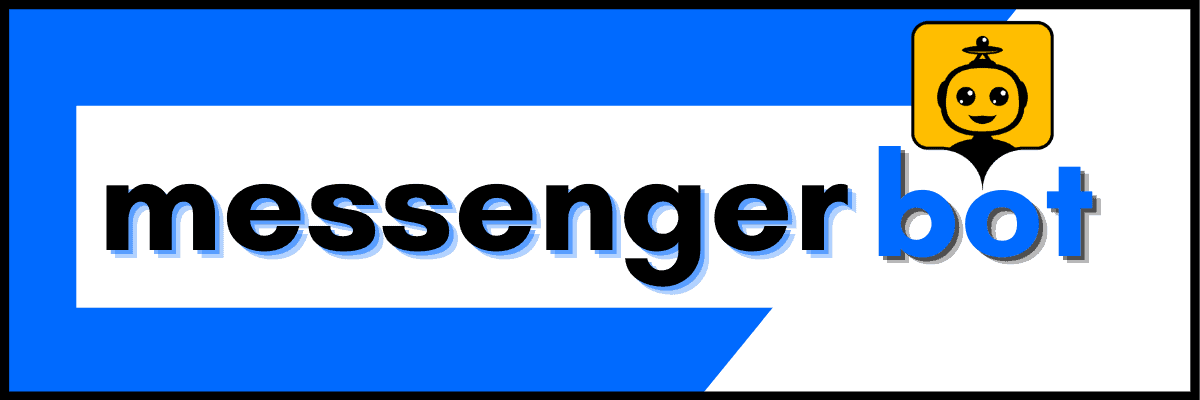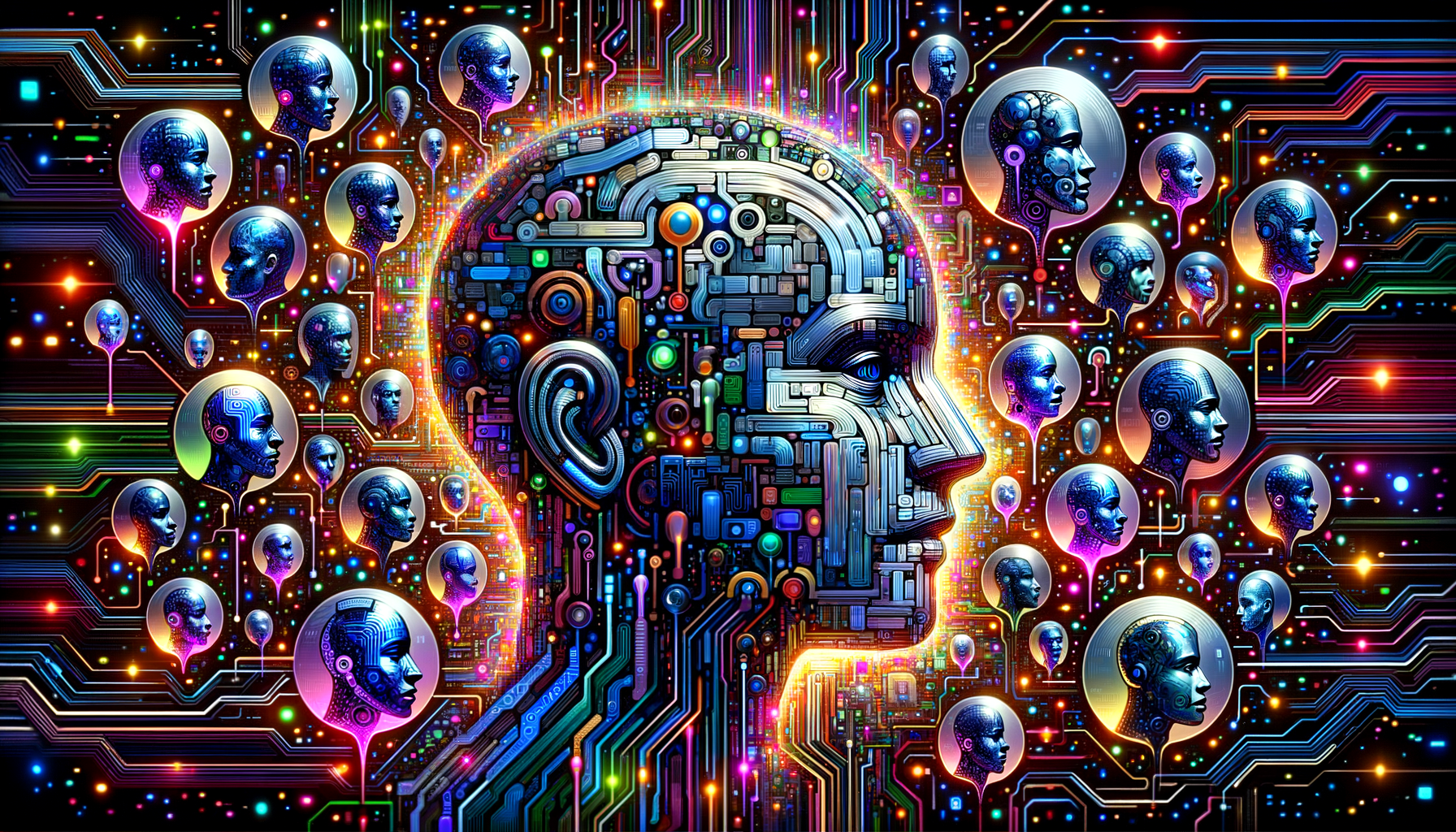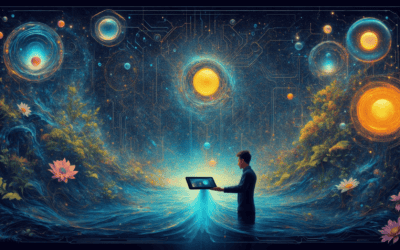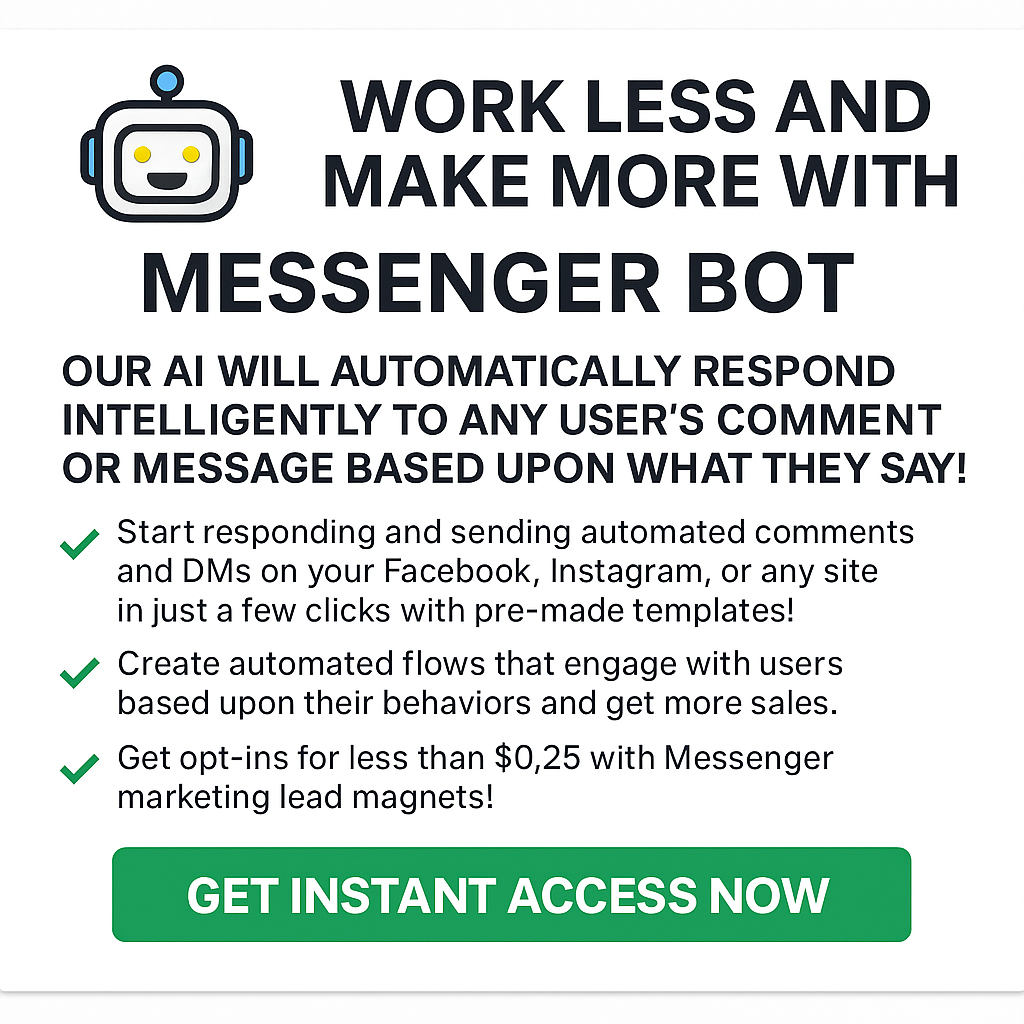In the rapidly evolving landscape of artificial intelligence, open source chatbot platforms have emerged as powerful tools for businesses and developers alike. These platforms, built on open source software principles, offer unparalleled flexibility, customization, and community-driven innovation. As organizations seek to enhance customer engagement and streamline operations, the question arises: what is the best open source AI chatbot? This comprehensive guide delves into the world of open source chat models, exploring top GitHub repositories, free AI chatbot alternatives to ChatGPT, and evaluating the most promising open-source solutions. Whether you’re a seasoned developer or a curious enthusiast, join us as we uncover the potential of artificial intelligence chatbots and discover how open source tools are revolutionizing conversational AI.
Understanding Open Source Chatbot Platforms
As a leader in AI-driven communication solutions, I’ve seen firsthand how open source chatbot platforms are revolutionizing digital interactions. These platforms offer businesses the flexibility and power to create sophisticated conversational interfaces without starting from scratch. Let’s dive into what makes these tools so valuable and explore some of the best options available.
What is the best open source AI chatbot?
When it comes to determining the best open source AI chatbot, several contenders stand out in 2024. While our Messenger Bot offers advanced features for automated responses and workflow automation, it’s important to acknowledge other powerful open source options:
1. Rasa: Known for its advanced Natural Language Understanding (NLU) capabilities, Rasa excels in handling complex, multi-turn conversations. It’s particularly suitable for enterprises requiring robust security measures.
2. Botpress: With its user-friendly visual flow builder and multilingual support, Botpress caters to both novice and experienced developers. Its flexibility in integrating various NLU engines makes it a versatile choice.
3. Microsoft Bot Framework: This platform stands out for its robust SDK and seamless integration with Azure services, making it ideal for building scalable chatbots across multiple platforms.
4. OpenDialog: Specializing in task-oriented dialogues, OpenDialog offers a unique conversation designer that can significantly streamline the development process.
5. Wit.ai: Owned by Facebook, Wit.ai provides powerful NLP capabilities and integrates well with Facebook products, making it a strong contender for businesses heavily invested in the Facebook ecosystem.
Each of these platforms has its strengths, and the best choice depends on your specific needs, technical expertise, and integration requirements. It’s worth noting that while these are excellent open source options, our Messenger Bot features offer a comprehensive solution that combines ease of use with advanced AI capabilities.
Open source software meaning and definition
Open source software (OSS) refers to computer programs whose source code is publicly available for anyone to view, modify, and distribute. This collaborative approach to software development has several key characteristics:
1. Transparency: The code is open for inspection, allowing users to understand how the software works and identify potential issues.
2. Flexibility: Users can modify the code to suit their specific needs or improve functionality.
3. Community-driven: Development often involves a community of contributors, leading to rapid innovation and problem-solving.
4. Cost-effective: OSS is typically free to use, though some projects may offer paid support or additional features.
5. Licensing: Open source software is released under licenses that comply with the Open Source Definition, such as MIT, Apache, or GNU General Public License.
In the context of chatbots, open source platforms provide developers with the foundation to build customized conversational AI solutions. This approach allows for greater control over the chatbot’s functionality and integration capabilities compared to closed-source alternatives.
While open source chatbots offer significant advantages, it’s important to consider factors like support, maintenance, and scalability. Our Messenger Bot pricing plans offer a balance between the flexibility of open source and the reliability of a supported platform, ensuring you get the best of both worlds for your conversational AI needs.
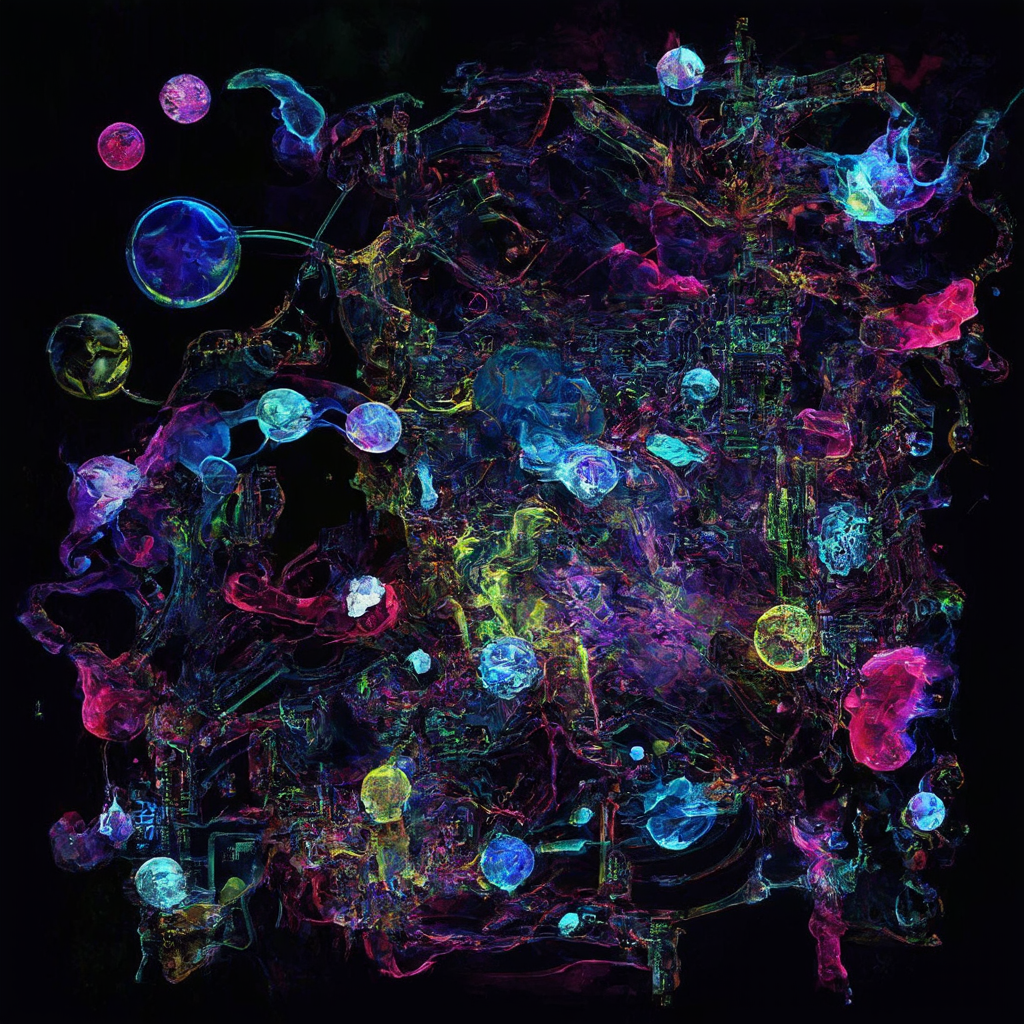
Exploring Top Open Source Chat Models
In my experience with AI-driven communication, I’ve seen a remarkable evolution in open source chat models. These models are the backbone of advanced chatbots, offering businesses like ours the ability to create sophisticated, context-aware conversational interfaces. Let’s dive into the current landscape of open source chat models and explore some standout options.
What is the best open source chat model?
Determining the “best” open source chat model depends on specific use cases and requirements. However, several models have emerged as frontrunners in 2024:
1. LLaMA (Large Language Model Meta AI): Meta’s LLaMA continues to be a game-changer. Its efficiency allows it to run on consumer hardware, making it accessible for smaller businesses and individual developers. We’ve seen impressive results when integrating LLaMA-based models into our Messenger Bot features.
2. GPT-J: EleutherAI’s GPT-J remains a powerful alternative to larger proprietary models. With 6 billion parameters, it strikes a balance between performance and resource requirements.
3. BLOOM: The BigScience BLOOM model stands out for its multilingual capabilities, which aligns well with our focus on multilingual messenger bots. Its 176 billion parameters make it a robust choice for complex language tasks.
4. OpenAssistant: This model has gained traction for its focus on being helpful, harmless, and honest – principles we prioritize in our AI interactions.
5. Alpaca: Stanford’s instruction-following model, based on LLaMA, has shown promising results in task-specific applications.
These models offer varying strengths in natural language processing, multilingual support, and task-specific performance. When selecting a model for integration with platforms like ours, it’s crucial to consider factors such as computational requirements, specific use cases, and alignment with ethical AI principles.
Open source chatbot platform GitHub repositories
GitHub has become a hub for open source chatbot development, hosting numerous repositories that showcase the collaborative spirit of the OSS community. Here are some noteworthy GitHub repositories for open source chatbot platforms:
1. Rasa: Rasa’s GitHub repository is a treasure trove for developers looking to build contextual AI assistants. Its robust architecture and active community make it a top choice for enterprise-grade chatbots.
2. Botpress: The Botpress repository offers a visual development environment that simplifies chatbot creation. Its modular design allows for easy customization and extension.
3. Microsoft Bot Framework: Microsoft’s Bot Framework SDK provides a comprehensive set of tools for building bots that work across multiple platforms.
4. Hugging Face Transformers: While not strictly a chatbot platform, the Transformers library by Hugging Face is invaluable for implementing state-of-the-art natural language processing models in chatbots.
5. Leon: Leon is an open-source personal assistant that can be customized and extended to create powerful chatbots.
These repositories offer a wealth of resources for developers looking to create or enhance chatbot solutions. At Messenger Bot, we often draw inspiration from these open source projects to improve our own AI-driven features, ensuring we stay at the forefront of chatbot technology.
When exploring these repositories, it’s important to consider factors such as active maintenance, community support, and compatibility with your existing tech stack. While open source platforms offer great flexibility, they often require more technical expertise to implement and maintain compared to managed solutions like ours.
For businesses looking to leverage the power of AI chatbots without the complexity of managing open source code, our free trial offer provides an excellent opportunity to experience the benefits of a professionally managed chatbot platform. It combines the innovation of open source with the reliability and support of a dedicated team.
Free AI Chatbots and ChatGPT Alternatives
In the rapidly evolving landscape of AI-powered communication, we’ve seen a surge in free AI chatbots that rival the capabilities of ChatGPT. As we continue to enhance our Messenger Bot features, we’re always keeping an eye on these alternatives to ensure we’re offering the best possible service to our clients.
Is there a free AI chatbot like ChatGPT?
Yes, several free AI chatbots offer capabilities similar to ChatGPT, and we’ve been impressed by their performance. Here are some noteworthy options:
1. Chatsonic: This AI stands out for its real-time internet research capabilities and link comprehension, features that surpass the free version of ChatGPT. We’ve found its up-to-date information particularly useful when integrating with our AI-driven chatbot optimization strategies.
2. Claude AI: Developed by Anthropic, Claude offers natural conversations and task assistance. Its focus on being helpful while maintaining ethical boundaries aligns well with our commitment to responsible AI use.
3. Replika: While different from our business-focused approach, Replika’s emphasis on emotional support and personal growth showcases the diverse applications of AI in communication.
4. DialoGPT: Microsoft’s open-source chatbot, available through Hugging Face, has been a valuable resource for developers looking to build custom solutions. Its flexibility complements our own customizable chatbot features.
5. Chai: This mobile app offers various AI personalities, demonstrating the potential for creating engaging, character-driven chatbot experiences.
6. Character AI: The ability to create and interact with custom AI characters aligns with our vision of personalized customer interactions.
7. YouChat: Combining AI conversation with web search capabilities, YouChat exemplifies the kind of integrated functionality we strive for in our own platform.
8. Jasper Chat: As an AI writing assistant with chat functionality, Jasper Chat showcases the potential for AI in content creation, a feature we’re exploring for future updates.
9. Perplexity AI: Its AI-powered search and question-answering features resonate with our goal of providing comprehensive customer support solutions.
10. BLOOM: This open-source language model available through Hugging Face has been a game-changer for developers looking to build sophisticated chatbots.
While these alternatives offer impressive capabilities, we at Messenger Bot are committed to providing a more tailored, business-focused solution. Our platform combines the best of AI technology with specific features designed for customer engagement and support, making it an ideal choice for businesses looking to leverage AI in their communication strategies.
Open-source chat AI options
The world of open-source chat AI is thriving, offering developers and businesses like ours a wealth of options to create powerful, customizable chatbot solutions. These open-source platforms have been instrumental in driving innovation in the field of conversational AI.
1. Rasa: This popular open-source framework allows developers to build contextual AI assistants. Its machine learning-based dialogue management has been a source of inspiration for our own AI chatbot engagement strategies.
2. Botpress: Known for its visual development environment, Botpress simplifies the process of creating complex conversational flows. We’ve incorporated some of its modular design principles into our own platform.
3. OpenDialog: This open-source conversational AI platform focuses on creating sophisticated, context-aware dialogues. Its approach to handling complex conversations has influenced our development of more nuanced chatbot interactions.
4. LEON: As an open-source personal assistant, LEON showcases the potential for creating highly customizable AI assistants. Its flexibility aligns with our goal of providing adaptable chatbot solutions for diverse business needs.
5. Mycroft: While primarily known as a voice assistant, Mycroft’s open-source nature and focus on privacy have informed our approach to data handling and user privacy in chatbot interactions.
6. Chatterbot: This Python library for creating chatbots uses a selection of machine learning algorithms to generate automated responses. Its simplicity and effectiveness have made it a popular choice for developers looking to create basic chatbots quickly.
7. DeepPavlov: This open-source conversational AI framework offers pre-trained models for various NLP tasks. Its comprehensive approach to language understanding has influenced our development of more sophisticated response generation.
These open-source options offer a range of capabilities, from basic conversational flows to complex, context-aware interactions. At Messenger Bot, we’ve drawn inspiration from these projects to enhance our own AI-driven features, ensuring we stay at the forefront of chatbot technology.
While open-source solutions offer great flexibility, they often require significant technical expertise to implement and maintain. That’s why we’ve designed our platform to offer the best of both worlds – the innovation inspired by open-source projects combined with the ease of use and reliability of a managed solution. Our free trial offer allows businesses to experience these benefits firsthand, providing a powerful, user-friendly chatbot solution that leverages the latest advancements in AI technology.
Evaluating Free Chatbot Solutions
At Messenger Bot, we understand the importance of finding the right chatbot solution for your business needs. While we offer a comprehensive platform with advanced features, we recognize that some businesses may be looking for free options to get started. Let’s explore the landscape of free chatbot solutions and how they compare to more robust offerings like ours.
Is there a free version of chatbot?
Yes, there are indeed free versions of chatbots available in the market. As a leader in the AI-powered chatbot industry, we’ve analyzed various free options to understand how they stack up against more comprehensive solutions. Here’s what we’ve found:
1. SnatchBot: This platform offers a free tier with AI capabilities and requires no coding skills. It’s a good starting point for businesses looking to dip their toes into chatbot technology.
2. MobileMonkey: Their free plan focuses on Facebook Messenger bots, which can be useful for businesses heavily invested in Facebook marketing.
3. ManyChat: Another option for Facebook Messenger bots, ManyChat’s free plan offers basic features for small-scale operations.
4. Chatfuel: With a free tier supporting up to 50 users, Chatfuel can be suitable for very small businesses or those just starting out.
5. Tidio: Their free plan includes basic features, which might be sufficient for simple customer service tasks.
6. Pandorabots: This AIML-based platform offers a free option for those interested in more technical chatbot development.
While these free options can be a good starting point, they often come with limitations in terms of features, customization, and scalability. At Messenger Bot, we’ve designed our platform to go beyond these basic offerings, providing a more robust solution that grows with your business.
Our pricing plans are structured to offer significant value, combining advanced AI capabilities with user-friendly interfaces and extensive customization options. We believe in providing a solution that not only meets your immediate needs but also supports your long-term growth strategy.
Open source chatbot platform free options
For businesses and developers looking for more flexibility and control, open source chatbot platforms offer an interesting alternative. These platforms allow for extensive customization and can be a cost-effective solution for those with technical expertise. Here are some notable open source chatbot platforms that are free to use:
1. Rasa: This popular framework allows developers to build contextual AI assistants. It’s highly customizable and supports complex conversational flows.
2. Botpress: Known for its visual development environment, Botpress simplifies the process of creating sophisticated chatbots. Its open-source version offers a solid foundation for building custom solutions.
3. OpenDialog: Focused on creating context-aware dialogues, OpenDialog is well-suited for businesses needing more nuanced conversation handling.
4. LEON: This open-source personal assistant showcases the potential for creating highly customizable AI assistants.
5. Mycroft: While primarily a voice assistant, Mycroft’s open-source nature makes it an interesting option for businesses looking to integrate voice capabilities into their chatbot solutions.
6. Chatterbot: A Python library for creating chatbots, Chatterbot is popular among developers for its simplicity and effectiveness in creating basic chatbot functionalities.
7. DeepPavlov: This framework offers pre-trained models for various NLP tasks, making it a comprehensive option for building advanced chatbots.
While these open source options offer great flexibility, they often require significant technical expertise to implement and maintain. That’s where our solution at Messenger Bot shines. We’ve taken inspiration from these open-source projects to create a platform that combines the best of both worlds – the innovation of open-source with the ease of use and reliability of a managed solution.
Our AI chatbot engagement strategies are designed to provide a powerful, user-friendly chatbot solution that leverages the latest advancements in AI technology. We offer the flexibility and customization options of open-source platforms, but with the added benefit of professional support, regular updates, and seamless integration with popular platforms.
For businesses looking to harness the power of AI-driven chatbots without the complexity of managing open-source solutions, our platform offers an ideal balance. We invite you to explore our free trial offer to experience firsthand how our chatbot solution can transform your customer interactions and drive your business forward.
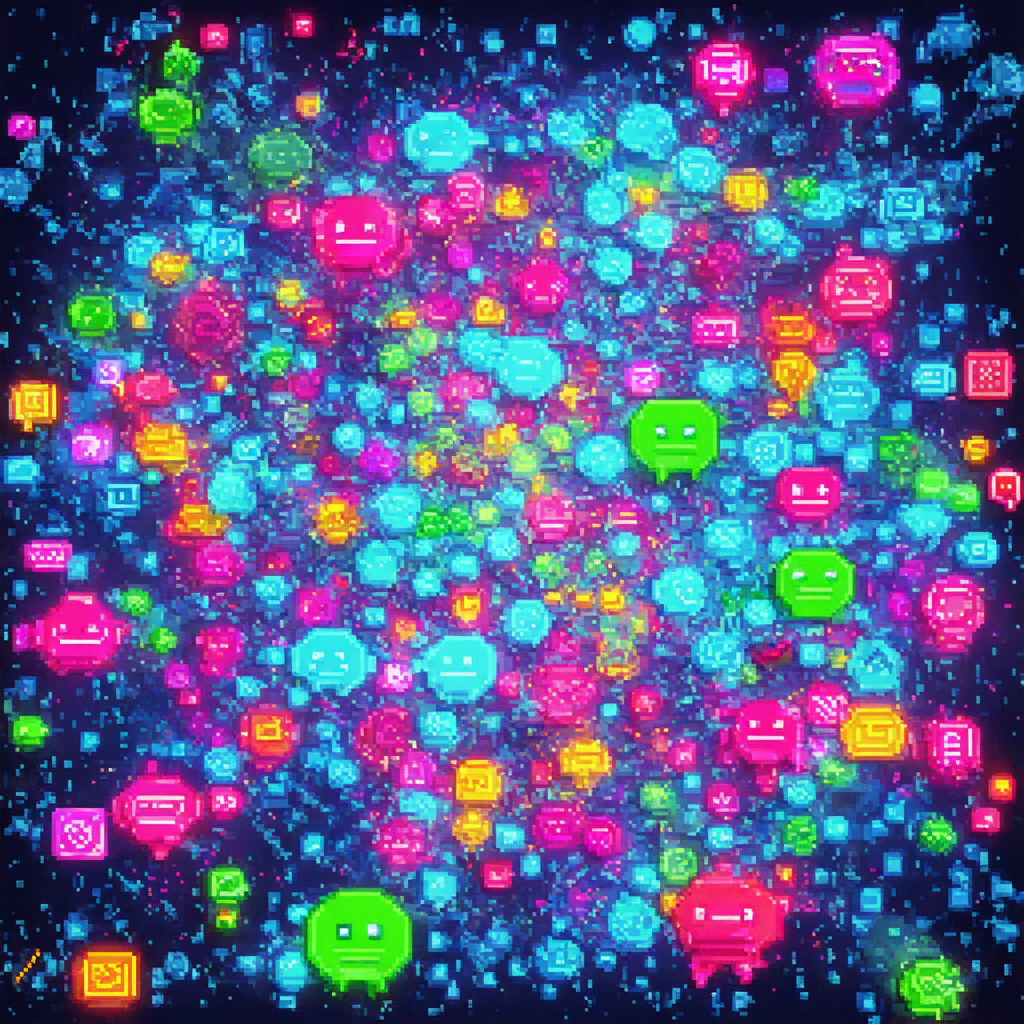
Open-Source Alternatives to ChatGPT
At Messenger Bot, we’re always keeping an eye on the latest developments in AI and chatbot technology. While our platform offers advanced AI-powered solutions, we understand that some users might be interested in open-source alternatives. Let’s explore the landscape of open-source options that aim to provide functionality similar to ChatGPT.
Is there an open-source ChatGPT?
While there isn’t an exact open-source replica of ChatGPT, several promising alternatives have emerged in the open-source community. These projects aim to provide similar conversational AI capabilities while offering the benefits of open-source software (OSS), such as transparency, customization, and community-driven development.
1. GPT4All: This locally-run, privacy-focused chatbot is trained on a diverse dataset, making it a popular choice for those concerned about data privacy.
2. ChatRWKV: Utilizing the RWKV architecture, this open-source chatbot can run on consumer hardware, making it accessible to a wider range of users and developers.
3. LLaMA: Developed by Meta, this foundational large language model serves as a base for many other open-source projects. Developers can fine-tune LLaMA for various applications, including chatbots.
4. Alpaca: Stanford’s instruction-following model, based on LLaMA, is designed for more natural interactions, bringing it closer to the ChatGPT experience.
5. Vicuna: Another LLaMA-based model, Vicuna is fine-tuned on ShareGPT conversations, aiming to improve performance in real-world scenarios.
6. Dolly: Databricks’ contribution to the open-source AI community, Dolly is an instruction-following model trained entirely on freely-available data.
7. OpenAssistant: This project aims to be a fully open-source alternative to ChatGPT, with a focus on conversational AI capabilities.
These open-source alternatives showcase the power of AI chatbot engagement strategies while offering developers the flexibility to customize and deploy their own versions. However, it’s important to note that implementing these solutions often requires significant technical expertise and may not match the performance of proprietary solutions like ChatGPT in all areas.
At Messenger Bot, we’ve drawn inspiration from these open-source projects to enhance our own AI capabilities. Our platform combines the innovation seen in the open-source world with the reliability and ease-of-use of a managed solution. This approach allows us to offer cutting-edge AI features while ensuring a smooth experience for our users.
Botpress: A popular open source chatbot platform
Among the various open-source chatbot platforms available, Botpress stands out as a particularly popular and robust option. Known for its visual development environment, Botpress simplifies the process of creating sophisticated chatbots, making it an attractive choice for developers and businesses alike.
Key features of Botpress include:
1. Visual Flow Editor: Allows for intuitive design of conversation flows without extensive coding.
2. Natural Language Understanding (NLU): Incorporates advanced NLU capabilities for more accurate intent recognition.
3. Multi-channel Support: Enables deployment across various platforms like websites, Slack, and Facebook Messenger.
4. Extensibility: Offers a plugin system for adding custom functionalities and integrations.
5. Analytics and Reporting: Provides insights into chatbot performance and user interactions.
While Botpress offers a powerful open-source solution, it’s important to consider the resources required for implementation and maintenance. At Messenger Bot, we’ve taken cues from platforms like Botpress to create a user-friendly solution that doesn’t require extensive technical knowledge to operate.
Our platform incorporates many of the strengths of open-source chatbots while providing a more streamlined, out-of-the-box experience. We offer features like advanced AI capabilities, multi-channel support, and detailed analytics, all within an intuitive interface that doesn’t require coding skills.
For businesses looking to harness the power of AI chatbots without the complexities of managing an open-source solution, our platform strikes an ideal balance. We invite you to explore our free trial offer to experience firsthand how our chatbot solution can transform your customer interactions and drive your business forward.
By combining the innovation of open-source projects with the reliability of a managed platform, we at Messenger Bot are committed to providing a cutting-edge chatbot solution that meets the evolving needs of businesses in today’s digital landscape.
Comparing AI Chatbots to ChatGPT
As pioneers in the chatbot industry, we at Messenger Bot are always evaluating the landscape of AI-powered conversational agents. While ChatGPT has undoubtedly made waves in the field, it’s crucial to recognize that there are several AI chatbots that offer unique strengths and capabilities, sometimes surpassing ChatGPT in specific areas.
Which AI is better than ChatGPT?
While ChatGPT has set a high bar in the world of AI chatbots, several alternatives have emerged that excel in various aspects of conversational AI. Here’s a rundown of some top contenders that are pushing the boundaries of what’s possible in AI-driven communication:
1. Anthropic’s Claude: This AI stands out for its nuanced reasoning and ethical decision-making capabilities. Claude’s enhanced context understanding makes it particularly adept at handling complex queries and maintaining coherent conversations over extended interactions.
2. Google’s Gemini: As a multimodal AI, Gemini integrates text, image, and video processing, offering a more comprehensive analysis than text-only models like ChatGPT. This makes it exceptionally versatile for tasks that require visual understanding alongside language processing.
3. OpenAI’s GPT-4: The successor to the model powering ChatGPT, GPT-4 demonstrates superior problem-solving abilities and creative thinking. Its improved factual accuracy makes it a more reliable source of information in many scenarios.
4. DeepMind’s Sparrow: With its robust fact-checking mechanisms and adherence to strict ethical guidelines, Sparrow addresses some of the concerns around AI-generated misinformation.
5. Perplexity AI: Specializing in real-time information retrieval and synthesis, Perplexity AI excels at providing up-to-date responses, making it particularly useful for queries about current events or rapidly changing fields.
At Messenger Bot, we’ve drawn inspiration from these advancements to enhance our own AI capabilities. Our advanced features incorporate elements of multimodal processing, ethical decision-making, and real-time information synthesis, ensuring that our chatbots remain at the cutting edge of AI technology.
Artificial intelligence chatbot open source solutions
While proprietary AI models like those mentioned above offer impressive capabilities, the open-source community has also made significant strides in developing powerful chatbot solutions. These open-source alternatives provide businesses and developers with the flexibility to customize and deploy AI chatbots tailored to their specific needs.
Some notable open-source AI chatbot solutions include:
1. Rasa: A popular framework for building contextual AI assistants and chatbots. Rasa offers both natural language understanding (NLU) and dialogue management capabilities.
2. Botpress: This open-source chatbot platform provides a visual interface for building conversational AI, making it accessible to both developers and non-technical users.
3. NLTK (Natural Language Toolkit): While not a chatbot itself, NLTK is a leading platform for building Python programs to work with human language data, serving as a foundation for many open-source chatbot projects.
4. Hugging Face Transformers: This library provides thousands of pretrained models for natural language processing tasks, including chatbot development.
5. OpenNMT: An open-source neural machine translation system that can be adapted for chatbot applications, particularly useful for multilingual chatbots.
These open-source solutions offer a level of transparency and customization that proprietary models can’t match. However, they often require significant technical expertise to implement and maintain effectively.
At Messenger Bot, we’ve incorporated insights from these open-source projects into our platform, striking a balance between the flexibility of open-source solutions and the ease of use of a managed service. Our chatbot platform leverages advanced AI capabilities while remaining user-friendly and customizable to suit various business needs.
For businesses looking to harness the power of AI chatbots without the complexities of managing open-source solutions, our platform offers a compelling alternative. We invite you to explore our free trial offer to experience firsthand how our AI-powered chatbots can transform your customer interactions and drive your business forward.
By combining the innovation seen in both proprietary and open-source AI models, we at Messenger Bot are committed to providing cutting-edge chatbot solutions that meet the evolving needs of businesses in today’s digital landscape. Our platform empowers you to leverage the best of AI technology while maintaining control over your customer interactions and data.
Leveraging Open Source Tools for Chatbot Development
At Messenger Bot, we recognize the immense potential of open source tools in chatbot development. These tools provide a foundation for innovation, allowing developers to create sophisticated AI-driven chatbots that can revolutionize customer interactions. By leveraging open source platforms, businesses can benefit from community-driven improvements and customizable solutions that adapt to their unique needs.
Best open source chatbot platform features
When evaluating open source chatbot platforms, several key features stand out as essential for creating powerful and effective conversational AI:
1. Natural Language Processing (NLP): Advanced NLP capabilities are crucial for understanding and interpreting user inputs accurately. Platforms like Rasa excel in this area, offering robust NLP engines that can be fine-tuned for specific use cases.
2. Multi-channel support: The ability to deploy chatbots across various platforms (web, mobile, social media) is vital. Botpress, for instance, provides seamless integration with multiple channels, ensuring a consistent user experience across touchpoints.
3. Customizable conversation flows: Flexible dialogue management systems allow for the creation of complex, context-aware conversations. Our own Messenger Bot platform incorporates this feature, enabling businesses to design intricate conversation trees that adapt to user inputs dynamically.
4. Integration capabilities: Open APIs and webhooks facilitate integration with existing systems and third-party services. This is essential for creating chatbots that can access and utilize data from various sources to provide comprehensive responses.
5. Machine learning capabilities: Platforms that support continuous learning and improvement based on user interactions are invaluable. This feature allows chatbots to evolve and become more accurate over time.
6. Analytics and reporting: Robust analytics tools help in monitoring chatbot performance and gathering insights for optimization. Our platform offers detailed analytics to help businesses understand user engagement and identify areas for improvement.
7. Multilingual support: In today’s global market, the ability to communicate in multiple languages is crucial. Open source platforms that offer multilingual capabilities, like our multilingual messenger bots, can significantly expand a chatbot’s reach and effectiveness.
8. Visual flow builders: User-friendly interfaces for designing conversation flows without extensive coding knowledge make chatbot development more accessible. This feature is particularly beneficial for businesses looking to rapidly prototype and iterate their chatbot designs.
By incorporating these features, open source chatbot platforms empower developers and businesses to create sophisticated AI assistants that can handle complex queries, learn from interactions, and provide personalized user experiences.
Open source platform meaning and benefits
Open source platforms refer to software whose source code is freely available for viewing, modification, and distribution. This open nature brings several significant benefits to chatbot development:
1. Transparency: Users can inspect the code, ensuring security and understanding how the chatbot operates. This transparency builds trust and allows for thorough vetting of the platform.
2. Customization: Developers can modify the code to suit specific needs, enabling the creation of highly tailored chatbot solutions. This flexibility is crucial for businesses with unique requirements that off-the-shelf solutions might not address.
3. Community-driven innovation: Open source projects benefit from contributions from a global community of developers. This collaborative approach often leads to rapid improvements and innovative features.
4. Cost-effectiveness: Open source platforms are typically free to use, reducing initial investment costs for businesses. This accessibility allows companies of all sizes to leverage advanced chatbot technology.
5. Vendor independence: Using open source solutions prevents lock-in to proprietary systems, giving businesses more control over their technology stack and future development.
6. Interoperability: Open source chatbot platforms often adhere to open standards, facilitating integration with a wide range of systems and services.
7. Learning opportunities: For developers, working with open source platforms provides valuable learning experiences and opportunities to contribute to the wider community.
At Messenger Bot, we’ve drawn inspiration from the open source community to enhance our own platform. While we offer a proprietary solution, we incorporate many of the benefits associated with open source development, such as customization options and continuous improvement based on user feedback.
Our approach combines the reliability and support of a managed service with the flexibility and innovation often associated with open source solutions. This hybrid model allows us to offer AI-powered customer service bots that can be tailored to each business’s unique needs while maintaining a high standard of performance and security.
By understanding the meaning and benefits of open source platforms, businesses can make informed decisions about their chatbot development strategy. Whether opting for a fully open source solution or a platform like ours that incorporates open source principles, the key is to choose a solution that aligns with your business goals and technical requirements.
We invite you to explore how our chatbot platform can help you leverage the best of both worlds – the innovation of open source and the reliability of a managed service. Start your free trial today and experience the power of advanced AI chatbots in transforming your customer interactions.
